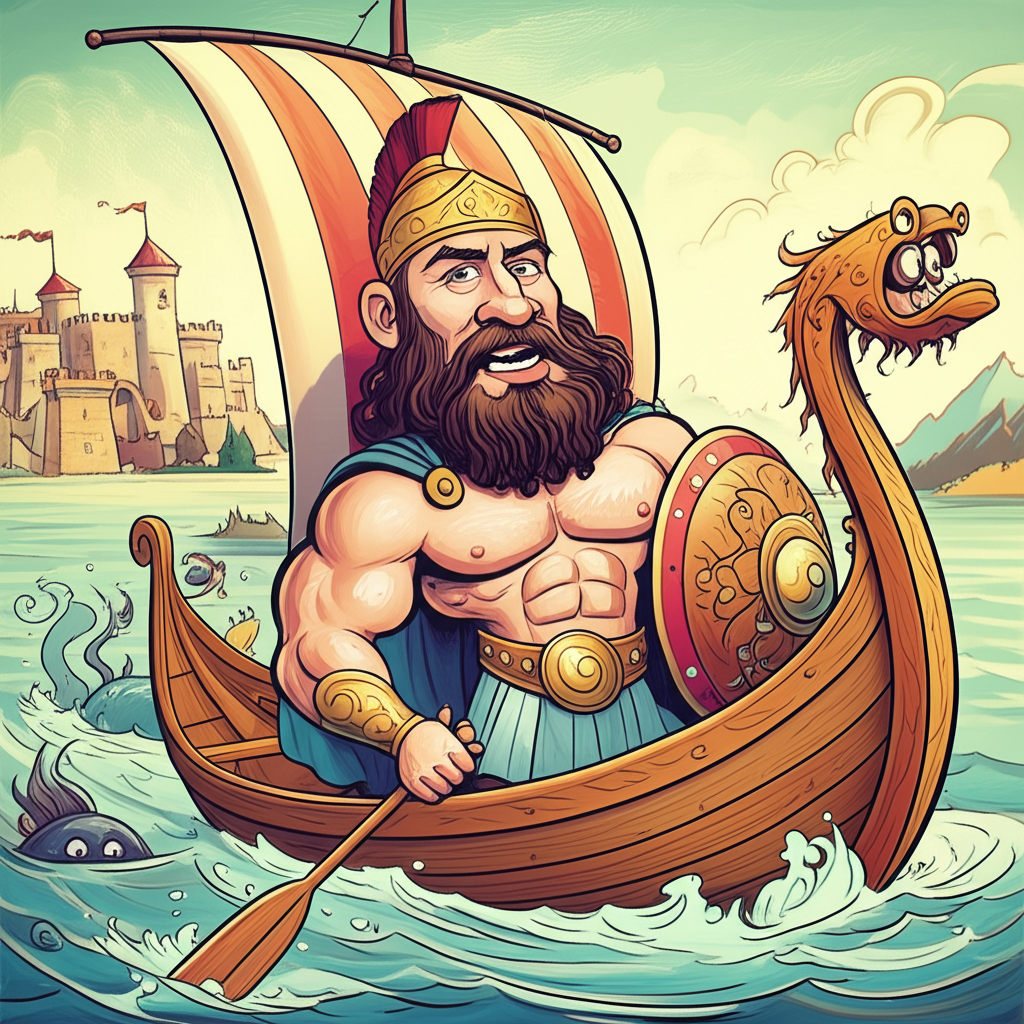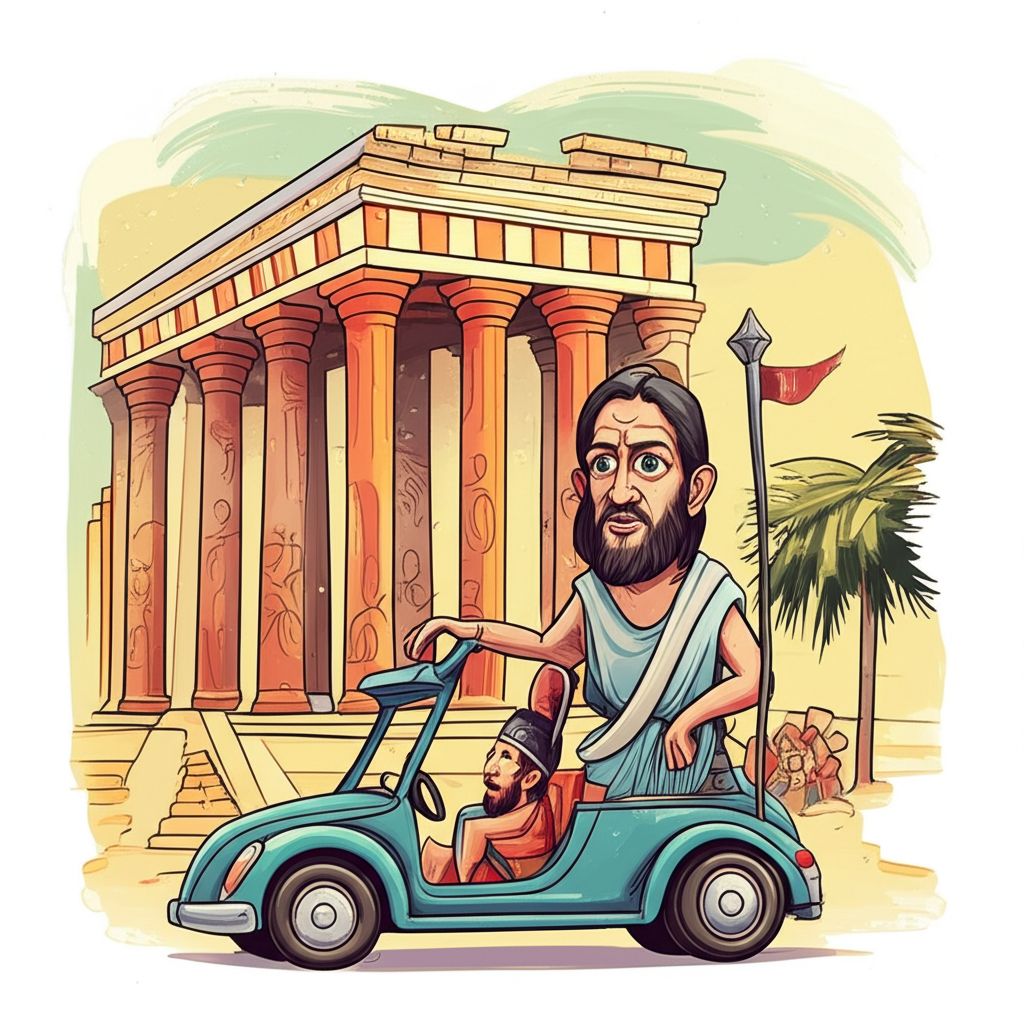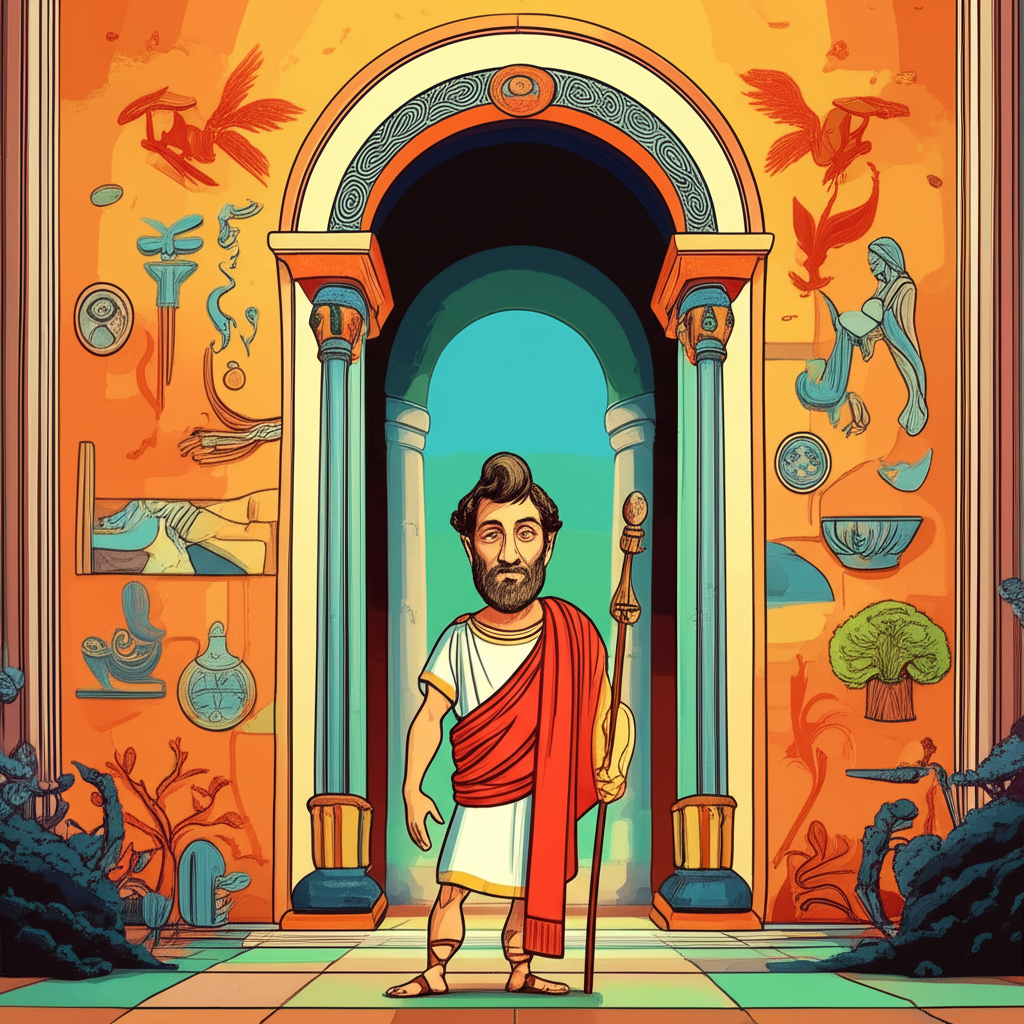
From the sun-drenched shores of ancient Greece, where olive groves clung to rugged hillsides and the Aegean Sea shimmered with an almost ethereal light, emerged a tapestry of stories woven from myth and legend. These tales, passed down through generations by poets and storytellers, offered explanations for the unexplainable, celebrated the heroic, and grappled with the profound mysteries of existence. Among these enduring narratives is the tale of Heracles, the mightiest of heroes, and his unexpected entanglement with the fateful journey towards the fabled city of Troy. It is crucial to remember that these are traditional stories, born from the fertile imagination of ancient peoples, and not accounts of factual events or divine pronouncements.
The cultural milieu from which these myths sprang was one of deep connection to the natural world and a polytheistic worldview. The ancient Greeks lived in a landscape that was both beautiful and dangerous, shaped by the capricious moods of the gods they believed inhabited its mountains, rivers, and skies. Their understanding of the world was infused with a sense of awe and a desire to find meaning in the cycles of nature, the triumphs of humankind, and the ever-present shadow of fate. Heroes like Heracles, often born of divine parentage and imbued with extraordinary strength, embodied the aspirations and struggles of this society. They represented the ideal of human potential, the ability to overcome immense challenges through courage, perseverance, and often, divine favor. The stories served as moral compasses, exploring themes of duty, hubris, justice, and the consequences of actions, all within a framework that acknowledged the power of forces beyond human control.
The central figure in this narrative is Heracles, a name synonymous with unparalleled strength and heroic deeds. He is not a god, though his father was the king of the gods, Zeus, and his mother was a mortal woman. This dual heritage made him a figure of immense power, often tasked with impossible labors that tested the limits of mortal and even divine endurance. His symbolic attributes are those of raw power, unwavering determination, and a complex, often troubled, moral compass. He is depicted with a lion’s skin, a testament to his first and most famous labor – the slaying of the Nemean Lion. His weapon of choice is the club, a brutal but effective instrument of his might. Heracles represents the untamed, primal force within humanity, capable of both immense destruction and profound good, a constant struggle between his divine impulses and his mortal limitations.
The narrative of Heracles and the voyage of Troy is not as prominent as his Twelve Labors, yet it offers a fascinating glimpse into the interconnectedness of Greek mythology. It speaks of a time when the winds of fate, personified by the gods, could dramatically alter the course of even the most powerful heroes. One such story recounts Heracles’ involvement in the aftermath of the Argonauts’ quest for the Golden Fleece. After Jason and his crew had returned to Iolcus, their ship, the Argo, was caught in a fierce storm orchestrated by the wrathful goddess Hera. The tempest drove the Argo off course, scattering its crew and bringing them to the shores of a distant land. It was in this precarious situation that Heracles, a hero renowned for his strength and resourcefulness, played a pivotal role.
While the exact details vary across different accounts, the essence of the story involves Heracles assisting the beleaguered Argonauts. Some versions suggest he was already on his own journey, perhaps seeking a cure for a divine curse or undertaking a different, lesser-known labor. Others place him as a temporary companion or a rescuer who happened upon their plight. Regardless of the precise circumstances, Heracles’ presence signifies a moment of crisis averted. He is often depicted using his immense strength to mend the damaged Argo, to guide the ship through treacherous waters, or to battle monstrous creatures that threatened the exhausted sailors. His involvement underscores his role as a protector and a force of order in a chaotic world.
The connection to Troy, while indirect, lies in the broader epic context. The Argonauts’ journey and the subsequent scattering of their ship foreshadow the larger conflicts and migrations that would shape the mythical landscape, including the eventual Trojan War. While Heracles himself does not participate in the war that would define the city of Troy, his actions in aiding the Argonauts highlight the interconnectedness of these grand narratives. His strength and heroism, even in seemingly peripheral tales, contribute to the overarching tapestry of Greek myth, demonstrating how the actions of one great hero could ripple through the lives of others and influence the destiny of legendary events.
The symbolism within the tale of Heracles and his entanglement with the Argonauts is rich and multifaceted. Heracles, with his extraordinary strength, symbolizes the power of human will and physical prowess to overcome adversity. His actions in aiding the Argonauts can be seen as representing the principle of communal support and the responsibility of the strong to assist the vulnerable. The storm that befell the Argo and its crew, on the other hand, symbolizes the unpredictable and often destructive forces of nature and the gods that could disrupt human endeavors. The eventual rescue, spearheaded by Heracles, embodies hope and resilience, the idea that even in the face of overwhelming challenges, human determination and courage can prevail. His involvement also serves to elevate the Argonauts’ voyage by associating it with the most famous hero of Greek legend, adding a layer of gravitas and importance to their already legendary quest.
In the modern world, the legend of Heracles, including his less frequently recounted interactions, continues to resonate. His story is reinterpreted in countless forms of literature, from epic poems and historical fiction to graphic novels. Hollywood has brought his mighty deeds to the silver screen in numerous adaptations, often focusing on his Twelve Labors but occasionally weaving in elements of his broader mythological career. Video games frequently feature Heracles as a playable character or a formidable boss, allowing players to experience his legendary strength firsthand. In academic circles, scholars of classical literature and mythology analyze these stories for their insights into ancient Greek society, their exploration of universal human themes, and their enduring impact on Western culture. These modern interpretations, while often embellished and adapted for contemporary audiences, serve to keep the spirit of these ancient tales alive, demonstrating their timeless appeal.
It is vital to reiterate that these narratives, including the story of Heracles and his encounter with the Argonauts near the shadows of Troy, are traditional stories originating from the cultural heritage of ancient Greece. They are products of human imagination, crafted to entertain, to instruct, and to explore the complexities of the human condition within a specific cultural context. As Muslims, we recognize that only Allah, the Almighty, is the true Creator and Sustainer of all existence, and that all power and authority reside with Him alone. These ancient myths, while culturally significant and creatively rich, are not to be mistaken for divine truth or a source of belief. They stand as testament to the enduring power of storytelling, a window into the minds and hearts of those who lived millennia ago, and a reminder of the vast and varied tapestry of human cultural heritage. The echoes of Heracles’ strength and the unfolding destinies of legendary heroes continue to captivate us, inviting us to ponder the timeless themes of courage, fate, and the enduring power of the human spirit, all within the realm of imaginative narrative.




